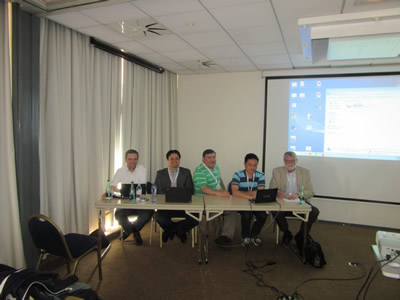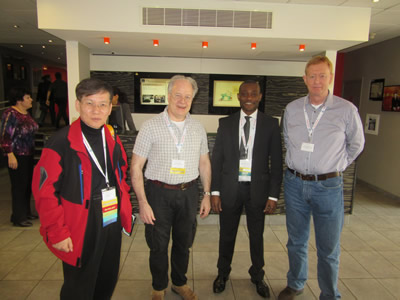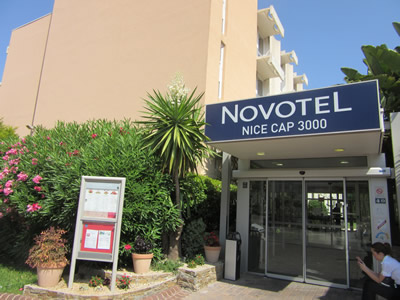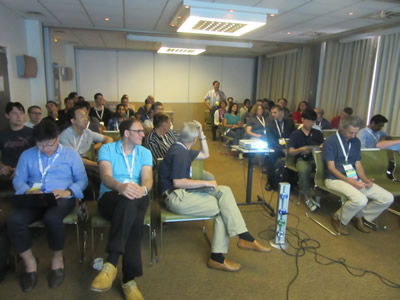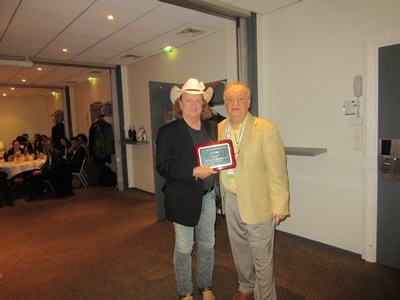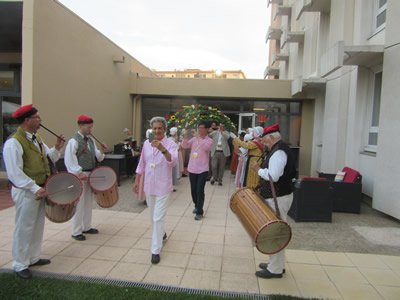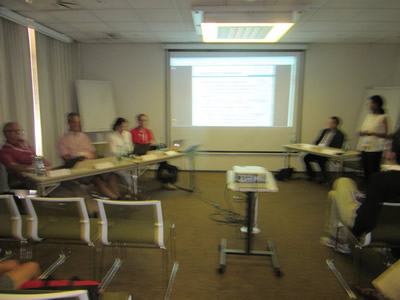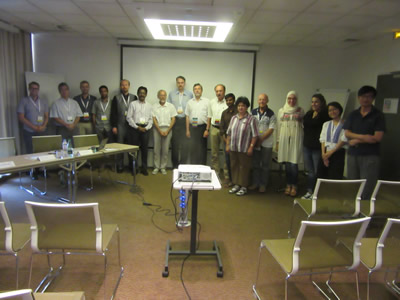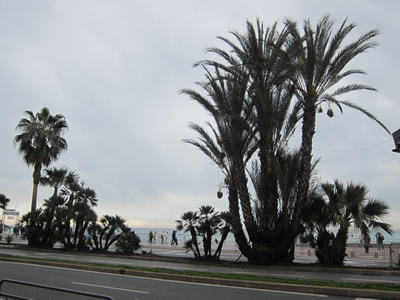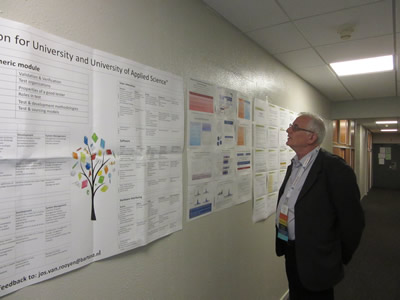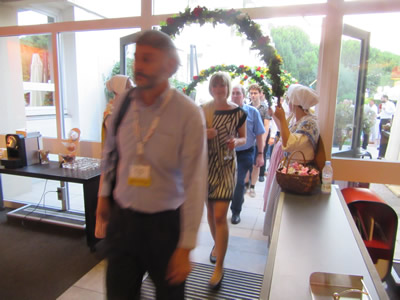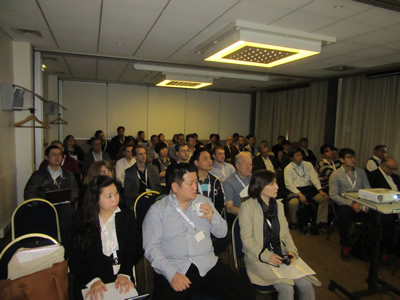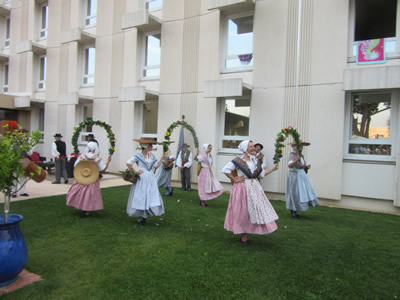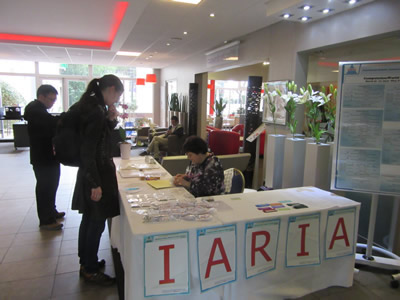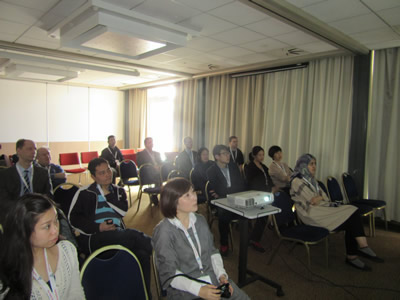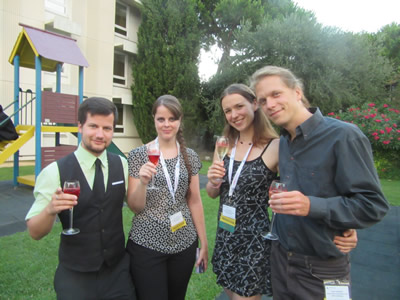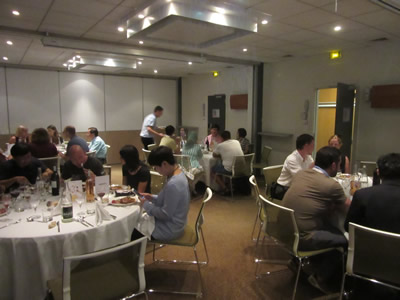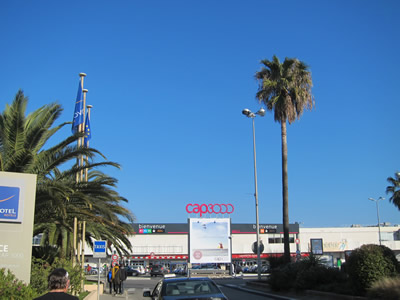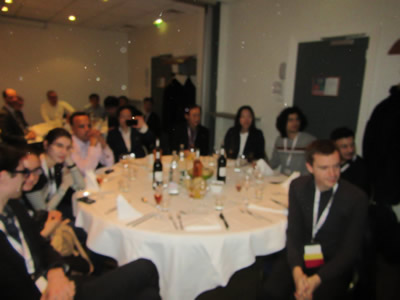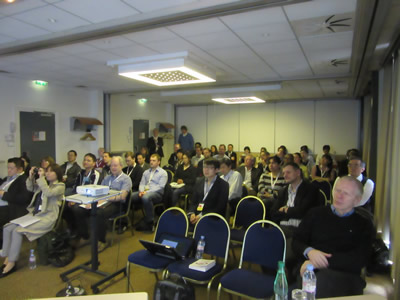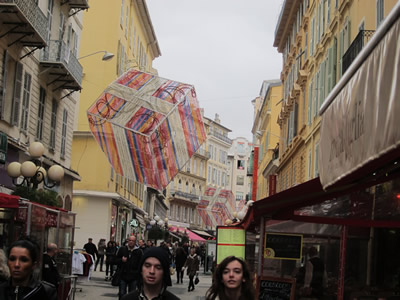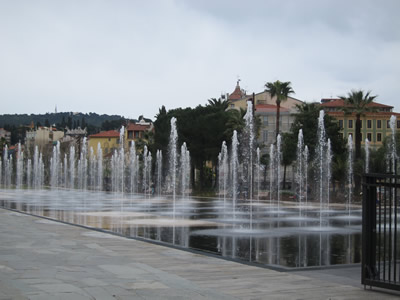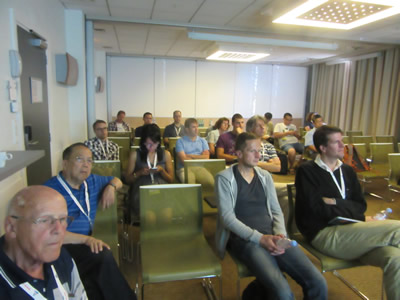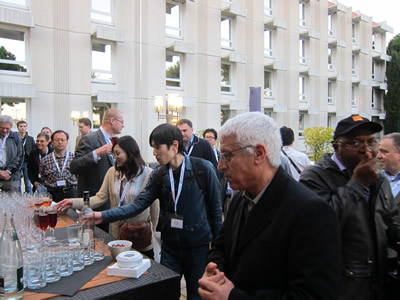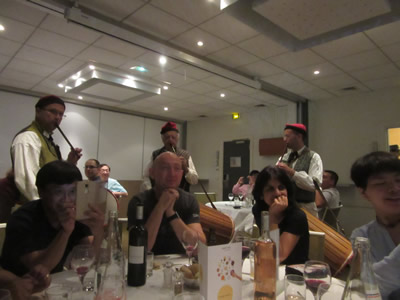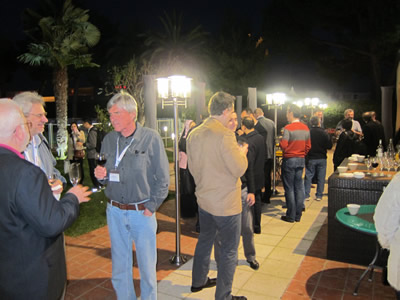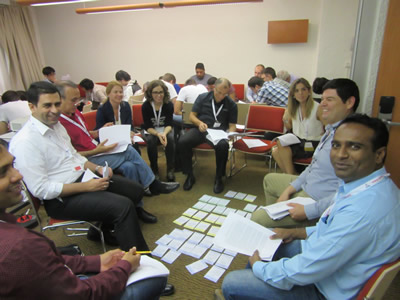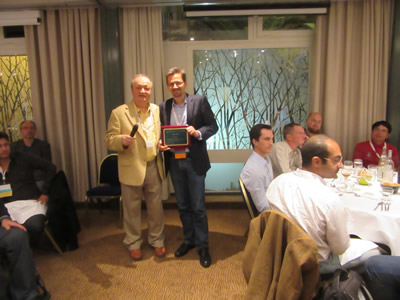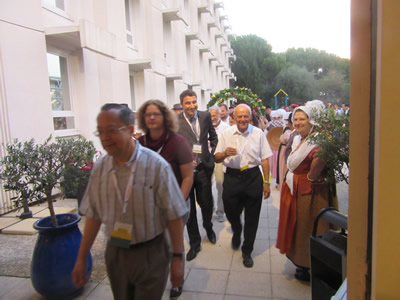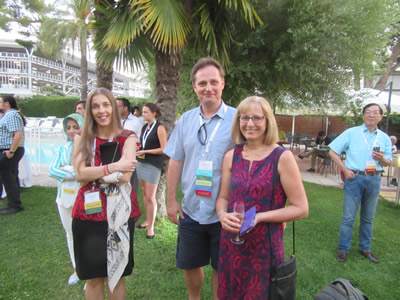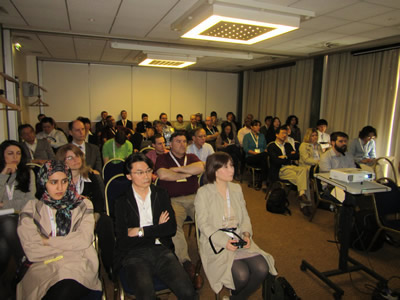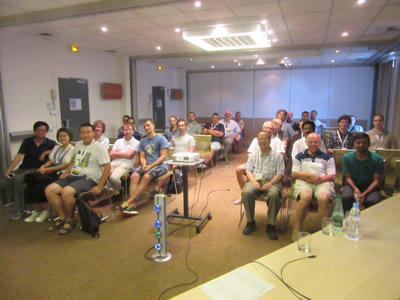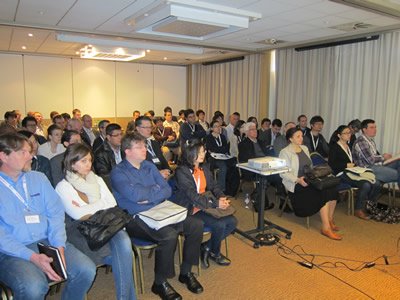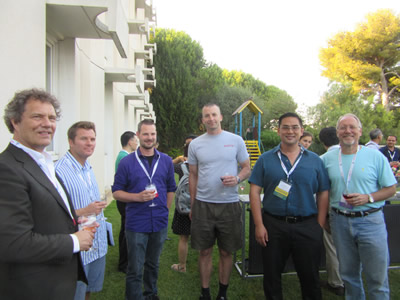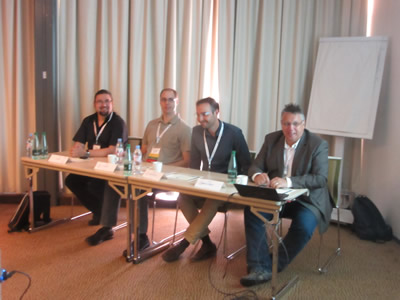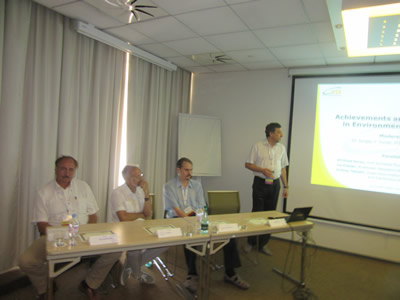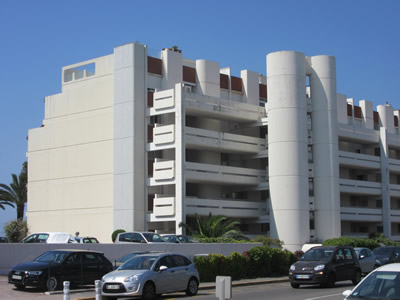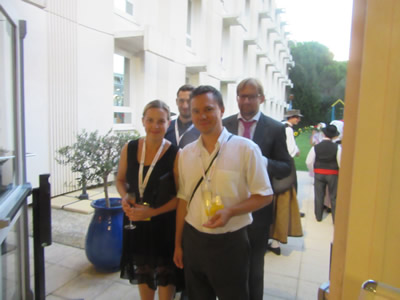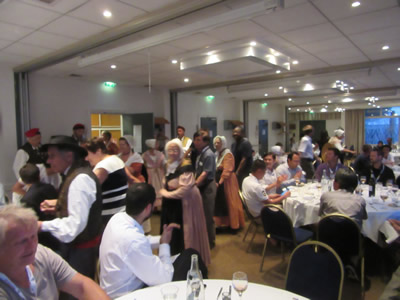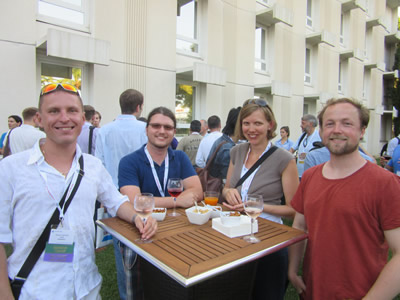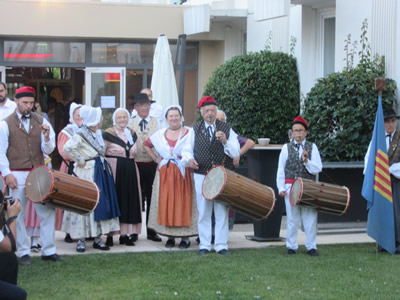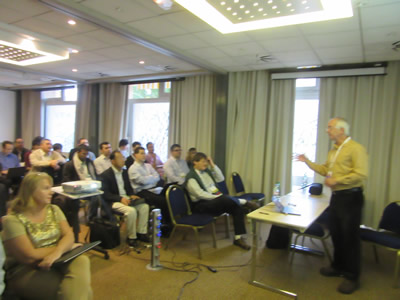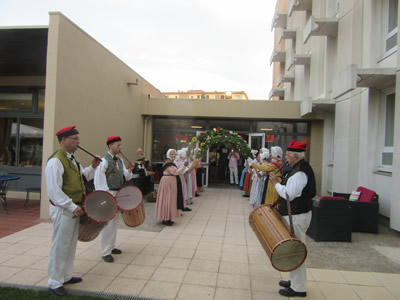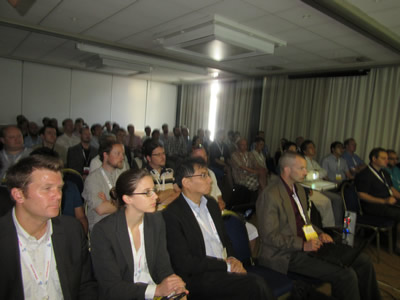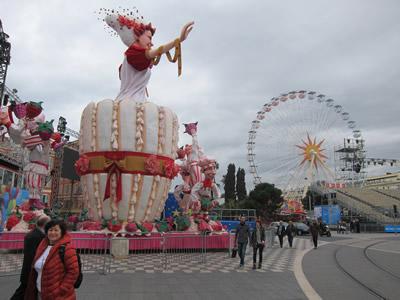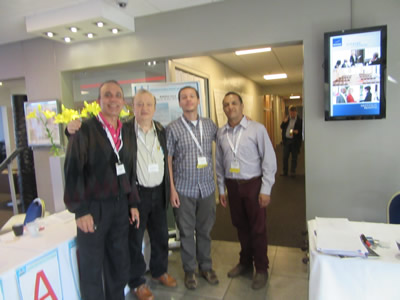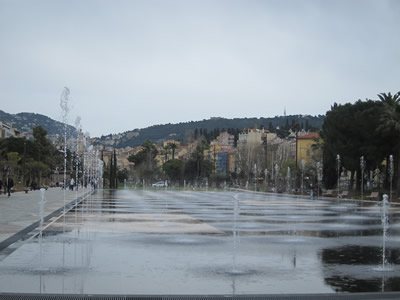Published by IARIA Press (operated by Xpert Publishing Services) | |
Archived in the Open Access IARIA ThinkMind Digital Library | |
Prints available at Curran Associates, Inc. | |
Authors of selected papers will be invited to submit extended versions to a IARIA Journal | |
Instructions
Submission deadline extended to:
March 31, 2026
Nice, France
Jul 05 - Jul 09, 2026
- IARIA Congress 2026, The 2026 IARIA Annual Congress on Frontiers in Science, Technology, Services, and Applications
Instructions
IARIA conferences provide an appropriate forum for the oral presentations and discussions of all accepted papers. When submitting a paper to a conference, it is assumed that, once accepted, at least one author is present at the meeting to orally present the paper. In the event that circumstances unknown at the time of submission or of acceptance of a paper preclude its presentation by an author, arrangements for substitutes should be made. To reduce no-shows to the IARIA events, the advance registration before submitting of the final manuscript is enforced.
All presented papers enter the 'best paper lane' for potentially having an extended version invited for IARIA on-line journals .
Paper submission is handled electronically by the IARIA site. In order to submit a paper you must follow the steps
- Go the conference page
- Click on “Submit a Paper”
- Fill out the "submission form"; a paper number as well as access information will be sent to you in a notification email
- Use the link from the email to access your paper's record; then use the “Upload” link to select and upload the file with your paper
- Please fill out the information on all the co-authors
- Please use e-mail addresses that represent your affiliations, as opposed to @gmail, @ieee, @acm, etc, e-mail accounts.
- When a problem must be reported, please send details on the facts, to help the logistics team support you.
Submission:
Note that submitting a contribution and uploading are two distinct steps
Step 1: Submitting the title, the abstarct, the contact-author, the co-authors, email address of contact author.
A notification emai will be sent to the email address of the contact author with instructions on how to upload the full manuscript
Step 2: Upload the manuscript
Recommendation:
Note that no contribution is considered based on abstract only. Before submitting, please consider the editorial rules for text-based contributions: https://www.iaria.org/editorialrules.html
All contributions enter a peer-review process.
Slide-based contributors, while peer-reviewed, can use a contributor-customized format. For slide-based contribution, see https://www.iaria.org/presentationformat.html
Once submitted, keep the original paper until feedback is receied, so as to not jeopardize the peer review process.
The original submission must not exceed the length of the final version by too much, except as explicitly indicated by the reviewers.
Conversely, do not upload for evaluation a longer version only to be shortened post peer review.
The above will help the committee members provide comments on the material that will be enhanced and published.
In any e-mail exchange with the organizers and logistics, please include the following items in the email subject: conference name and the article number.
Submissions are peer reviewed by 4-6 members of the International TPC (Technical Program Committee). TPC consists of international experts who are leading researchers in the field, working in academia and industry. The comments are intended to drive the authors to provide a better camera-ready or to improve the future submissions, when rejected. All comments are in the spirit of scientific help.
IARIA also provide for free a dedicated review on the editorial/grammar/punctuation. Before and after the camera-ready version there is a cross-validation of the accuracy of updated version. The last validation is performed on the publisher's site.
Good articles that need extra work enter a few rounds of reviews and feedback by permanent assisted for quality improvement. The acceptance is based on the reviews and the quality of the submissions. There is no target for the acceptance rate; practically, excellent papers are accepted. On average, the acceptance rate after the first revision varies from 27% to 36%, depending on the conference and workshop; the percentage may drop a little after the cross-validation.
Camera-ready versions of all accepted papers must be prepared taking into account the comments of peer-reviewers. Contributions that require special assistance are diligently finalized in a coaching mode, when dedicated logistics staff are assigned to help.
Papers with very valuable ideas, but in much need of presentation improvements, are given special attention; a TPC member from the IARIA “task force” will be coaching the authors to improve the paper. The final version is again revised by a IARIA member to validate the quality.
Accepted and rejected papers are acknowledged; reviews are sent to the authors in both cases.
Camera-ready versions are validated again on the Publisher site, for accuracy; fraudulent final submissions of substituted or of on purpose unprofessional content will be rejected.
Reviewers are instructed to keep confidentiality on the submissions /either accepted or rejected/; only accepted papers are exposed to the public audience.
Note that while we strive to have 100% accurate information, there is always the possibility of human error. IARIA is not responsible for inaccuracies, typos, or misprints presented online, electronically, in print, or otherwise.
The accept/reject decision for any given submission is final. However, at its discretion, IARIA may reconsider specific works for a reassessment with regards to the accept/reject decision. If deemed necessary by IARIA, a committee will reassess the work and render a final decision. The decision of such committee is final and no further appeals will be possible.
Update as of 2013 events and ongoing:
The submitted works are expected to be scientific in nature, free of politics, religion, or propaganda. Any contribution found to violate this will be removed from the event and publication.
Camera ready formatting guidelines
[for convenience, we keep the submission format as the IEEE two column format]
Camera ready papers are handled by the Publisher production editors and their contractors. Every conference has a link to a document on how to prepare your document for publication. The link is under "Manuscript Preparation". Please follow the steps indicated in that document:
- Open an account using the conference code at that link
- Reformat and validate the format of the camera ready
- Assure the copyright transfer form is finalized as per on-line indication of our Publisher.
Authors should prepare an Adobe Acrobat PDF version of their paper. Papers must be in English and follow the format indicated in the Call for Papers.
Extra pages, in a limited number, at additional costs, are possible, as mentioned in the registration form of each conference.
Manuscript preparation details contain information on the paper formatting guidelines. Please follow these guidelines for the paper version to be uploaded on the publication site. The manuscript preparations are available from the specific conference page after the notifications are sent out.
A good reference site to help preparing with your paper is the formatting rules. Latex templates are also available.
Please carefully follow the editorial rules that are enforced when the camera-ready paper is inspected.
An accepted paper must be registered, following the registration form posted on the conference site. IARIA registration is “per paper”, this means that each accepted paper must be registered on a separate registration form. If many authors of the same paper intend to attend the conference, a registration is needed for each attending author.
The logistics work and conference services are offered by IARIA via many contractors and the registration fees cover these costs only.
The registration form contains several categories: students, IARIA Fellows, academic, and industry.
When registering, please use the online registration form. Only after the payment transaction succeeds is a paper considered registered.
When paying via the “wire transfer”, make sure the paper ID and the name of the contact author is listed properly on the transfer form at your bank. This is the only way that the sender can be properly identified. In this case, the registration must be initiated early enough to ensure a successful transaction before the registration deadline.
All IARIA conference proceedings and Journal issues are Open Access, freely accessible via the ThinkMind Digital Library [https://www.thinkmind.org/]
Authors have the right to repost the content anywhere else.
Google Scholar is the preferred indexing approach (performed via the Mirror at Universitat Politècnica de València: http://personales.upv.es/thinkmind/)
However, it seems that Google Scholar is more prompt with articles submitted by individual authors. To have your work indexed by Google Scholar, you can host the articles on your academic/institution server, and then follow these instructions for the submission process. Note that quite a number of our publications have been mirrored in university repositories, and those repositories have been quite readily indexed by Google Scholar. To our surprise, a very large number of universities have these repositories to host articles written by the professors at their institution. An example of this is CentAUR: Central Archive at the University of Reading.
Another venue to have the articles in Google Scholar is to upload them to your ResearchGate profile. From there, they can be submitted to Google Scholar for indexing.
For specialized conferences, specialized indexes might be considered, e.g.,
> HCIbib index [http://hcibib.org/hci-sites/conferences] for ACHI, SOTICS, HUSO, or CENTRIC series,
or
> MedLine Index [https://www.nlm.nih.gov/bsd/journals/online.html] for eTELEMED, GLOBAL HEALTH, HEALTHINFO, or BRAININFO series.
For ALL other indexes (there are more than 60), anyone can submit a request for indexing to the appropriate indexing entity, as the conference and journals materials are fully displayed with Open Access (free-access, free re-posting) in the ThinkMind digital library.
Authors have full rights to post and re-post, providing the original source (e.g., URL from ThinkMind Digital Library) is provided.
DOI vs (Open Access) URL
URL is a unique address where a document (details on identification and content) will be found.
DOI is an object identifier on a document; in the end, DOI leads to the URL to find the document in question.
Therefore, URL is the basis for a document; as ThinkMind is an open-access, one can go directly to the URL of each paper; that URL is unique.
For digital documents, there is no need for DOI (as just an intermediary between a document title and its URL)
Note: DOI is more useful for only-printed documents that do not have an individual URL per document.
Actually, DOI came from the printed-only journals, before the digital era, to identify a paper document.
As a similitude: asking DOI for a digital document (that has its own URL) is asking somebody to have a digital signature, but in 'red', not in 'blue'.
Briefly, for digital directly accessible documents (as any IARIA materials are) DOI is useless.
Ultimately, DOI can be substituted by URL (as Open Access).
- Constructive criticism is welcome
- Unfounded and anonymous defamatory statements are discouraged and disregarded
- In the past, different sites, Beall's list (~2012/2013, now internationally retracted), other lists, were used to promote fraudulent news and defamation on various organizations
- Currently, fake news are common in social media; the educated reader is expected to use appropriate judgement for getting the real news
- To get a feeling for IARIA's selection and publication process, we recommend you become a committee member, submit a contribution, attend the event, etc.
- Essentially, the conference peer-review process is one of the most comprehensive one, with a few review rounds and updates
- Conference Proceedings are Gold Open Access free-access in the ThinkMind digital library
- Journals with extended version publications are by invitation only, and selected from articles already presented at a conference. Journal submissions are peer-reviewed, Gold Open Access (free-access), and in the ThinkMind Digital Library
- All conferences have an ISBN and an ISSN.
- Both Conferences and Journals are
- Registered: with the Library of Congress of the United States of America (ISSN)
- Stored: in ThinkMind Digital Library, at https://www.thinkmind.org/
- Mirrored: ThinkMind content is mirrored by Universitat Politècnica de València, at http://personales.upv.es/thinkmind/
Ethics on the use of Generative-AI
Generative-AI should not be used, referred to, or substituted by authors
Authors are fully owning the content and are responsible of the entire narrative
Any survey using Generative-AI should be avoided
Authors are encouraged to back-up their reports by their own experiments and conclusions
Failure to comply with these guidelines is considered unethical and contributions will be discharged without notice
Note: IARIA endorses and applies the levels of offense, investigation and penalties set by the ACM Code of Ethics.
Withdrawal and Plagiarism policy
IARIA encourages young researches, professors, and engineers to submit new idea papers, practical results, lessons learnt, as well as any substantial contributions to the scientific community.
We strongly advise that the papers be carefully edited to improve the legibility of the text. The length of the originally submitted papers must not vary too much from the camera ready version.
While withdrawing a paper may happen in a limited number of cases, we support the fairness of the submission. Please take note of the following with respect to paper submissions:
(i) A submission SHOULD NOT be intended to get reviews from the TPC for the sole purpose of improving on the quality of the paper. A submission implies that the author intends to ultimately register the paper upon a favorable response from the organizers. IARIA doesn’t encourage withdrawals after the paper is accepted.
(ii) Once submitted, a contribution should not be resubmitted to another event before a confirmation of acceptance or rejection. As e-mail may fail, it is the responsibility of the authors to ensure there is no double submission based on an assumption that the paper was rejected, but the e-mail failed to be received. IARIA doesn’t support double submissions. Once a paper is submitted elsewhere, and no decision was clearly received, don’t submit the same paper to IARIA conferences.
(iii) Small amounts of already published material are allowed in any submission, under the condition that the source be clearly identified. If the reference is missing [quotes and citation], and the paper is published, the publishing authors must write a letter of apology to the original author. If the paper is not published, the review process must enforce the authors to make this reference; publication process continues only after the text was properly corrected.
(iv) IARIA fully follows ACM and IEEE plagiarism polices and cooperates with ACM and IEEE to enforce them.
If plagiarism is discovered during the review process, the paper is automatically rejected; the author must explain the cause and write a letter of apology to the original author.
If plagiarism is discovered after the paper is published, the following rules apply.
For ACM Plagiarism policy, see: “Plagiarism on the rise”, Ronald F. Boisvert, Mary Jane Irwin, Communications of the ACM, June 2006, Volume 49, Number 6, pp.23-24.
As per the authors of the article mentioned above “the verbatim copying, near-verbatim copying, or purposely paraphrasing portions of another author’s’ paper” is plagiarism.
IARIA endorses and applies the levels of offense, investigation and penalties set by the ACM Code of Ethics.
Litigations must be properly followed; the offending authors must apologize to the offended authors. IARIA will inform the authors’ organization about the plagiarism facts. If subsequent offenses occur, the author is banned from publishing in IARIA conferences. This rule is 100% enforced.
IARIA and its contractors ensure to the best of their ability that the scheduled events will take place in a most welcoming manner, both from a technical stand point, as well as attendees' well being perspective. Certain events beyond our control may occur, which can directly affect the event schedule and/or participants' security and health. Such cases can be earth quakes, major floods, hurricanes, contagious disease epidemics, hostile social movements, wars, general strikes, and dysfunctional infrastructure (e.g., transportation, food, police).
In cases falling under the above described scenarios, IARIA reserves the right to relocate the event, postpone the event, adapt the offered services. Additionally, the above described situations can affect the ability to deliver other local services (e.g., shuttle, shows, social events, etc.).
IARIA and its contractors commit to professionally handle the submissions, ensure their publication, and eventually provide the electronic proceedings to the authors who registered for the event.
IARIA and its contractors do not carry any insurance against event cancellation, postponement, relocation to alternate premises, or non-appearance of attractions.
To this effect, you are encouraged to purchase individual insurance on your own.
Copyright (c) 2006-2026, IARIA

